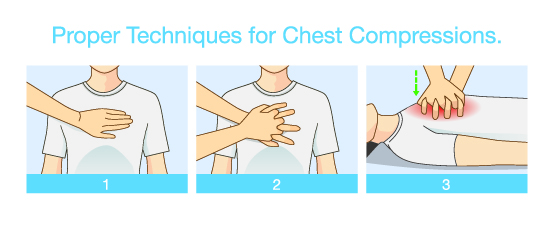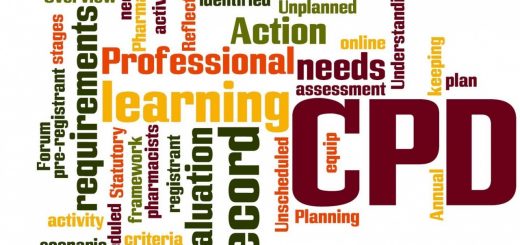Common CPR Questions and Answers
Here are some answers to some common questions about Cardiopulmonary Resuscitation (CPR). Do you have a CPR question that needs answering? Leave us a comment and we’ll answer it for you!
Is CPR effective?
Some people believe that CPR is a waste of time as so many cardiac arrest sufferers still die after receiving it. Whilst it is true that not everyone will survive, it is impossible to tell who will and who won’t. This is why it is vital that everyone who needs first aid is given the chance to live.
If someone suffers from a cardiac arrest their chances of survival improve dramatically if someone else is able to;
- Call 911 to get emergency help which will hopefully arrive quickly
- Maintain the victim’s blood circulation via chest compressions
- Use a defibrillator promptly
- Ensure the sufferer receives specialized treatment as soon as possible
When the heart stops beating after cardiac arrest, the blood stops being circulated through the body. For the first five or so minutes after a cardiac arrest occurs, there should be sufficient oxygenated blood in the victim’s system. Chest compressions work by pumping this blood around the system and thus preventing oxygen starvation in the brain and lungs. This is why speed is so essential – you are trying to buy time before the emergency services arrive.
If you have been trained in the use of an automated external defibrillator and have access to one, you should use it as soon as possible. This machine can shock the heart into starting again. The victim will still need to go to the emergency room to find out why the cardiac arrest happened and hopefully to prevent the next one which could prove fatal.
Hopefully more people will see how important it is to obtain CPR certification or to take CPR classes or first aid training.
Should you train via the Red Cross CPR training scheme or attend an American Heart Association CPR class?
It doesn’t really matter which of these organizations you choose to for your CPR certification as both are committed to providing excellent instruction and educational materials. If you attend Red Cross CPR classes your certification is valid for 12 months whereas the American Heart Association CPR certification lasts for two years. But this may change in the future as studies show that people forget most of what they learned within the first six months of qualifying. Regardless of which provider you choose, you should also do some extra study yourself to keep your skills up to date once you have passed the initial CPR tests.
What do CPR classes involve?
Most CPR classes will involve some role play as well as skills practice on the manikins. You will start by learning the theory of first aid and cardiopulmonary massage. Then the instructor will demonstrate the techniques to you explaining how your approach would differ depending on the age of the victim. For example, newborns and young children usually go into cardiac arrest after experiencing breathing problems and so will need rescue breaths as a priority. For adults, cardiac arrest occurs first so chest compressions would be the place to start.
Once the CPR instructor feels you have gained a certain level of knowledge he will encourage some role play between you and your partner where one pretends to be the victim and the other the rescuer. Some CPR instructors will combine this skills practice with some sessions using manikins. Theory is one thing but it is the actual procedure that will potentially save a life. This is why it is important to follow up any online CPR class with some practical experience.
Is CPR safe?
Fear of being sued may at first appear to be valid but when you think about it, could you be successfully sued for going to someone’s assistance? Without help, they will die so you can hardly make the situation worse. On the other hand, many people have saved lives using the skills they learned at a short CPR class.
Fear of infection is one that a lot of people mentioned but the chances of catching a serious illness via mouth to mouth is low and you can buy masks which reduce the risk further.
Lack of confidence was the main one that the American Heart Association felt could be addressed. If the CPR technique was made easier for the general public, then perhaps more bystanders would be willing to help.
Are rescue breaths or mouth-to-mouth always necessary?
Medical research has shown that chest-compression-only CPR, done properly, is just as effective if not more so than traditional ABC resuscitation for the first five minute at least. One of the reasons it may be more effective is that a cardiac victim doesn’t have a lot of time and every second counts. Chest compressions can be started immediately whereas it can take several seconds to get the victim ready for rescue breaths.
It is vital that more of us attend classes to obtain our CPR certificate and make sure it is kept up to date. The American Red Cross CPR card is valid for a year and the American Heart Association CPR certification is valid for two. If you are not sure which type of CPR certification you have, you will find the name of the relevant organization on the certificate itself. Some people will qualify in adult CPR but most will choose to qualify to give cardiopulmonary resuscitation to everyone.
What certifications are needed for CPR training?
If you have been avoiding going to a first aid class because you have no medical training or experience, don’t worry as you don’t need any. CPR classes are open to everyone.. even kids. The only requirement is that you are old enough to understand the information being taught. You should also have the body strength to be able to do chest compressions but this should include children aged 8 and older. Obviously, it would depend on the build of the child and their emotional maturity.
What happens if I don’t do my CPR recertification training?
It depends on whether you need to hold a valid CPR certificate for any reason. There are certain roles where employers will require you to hold up to date first aid skills. If you let your certificate expire you could put your job at risk. It is not worth taking the chance particularly as it takes only a couple of hours to sit the CPR recertification course. You have to recertify every year if you trained via the American Red Cross and every two years if you trained with the American Heart Association.







